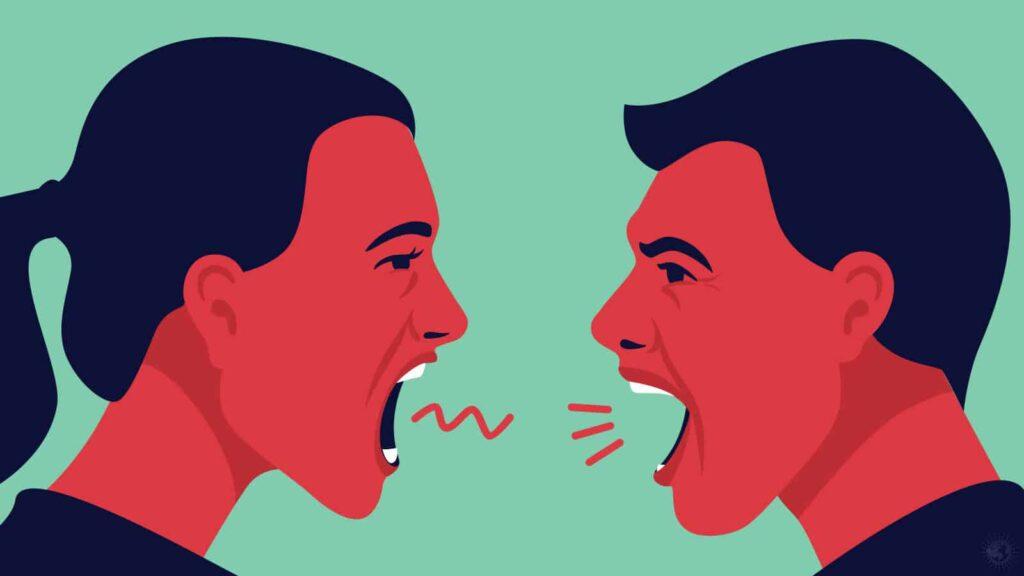Abuse in a relationship can be defined as repetitive manipulative behaviours used to exert control over the partner. Abuse can take many forms.
- Emotional abuse
- Physical abuse
- Sexual abuse
- Verbal abuse
- Financial abuse
- Withholding basic necessities
Any of these forms of abuse or a combination of these forms of abuse can be commonly found in relationships. So what are the signs that you are in an abusive relationship? Let’s take a look.
Signs of an abusive relationship
- Jealousy and Possessiveness
The abuser will display subtle or clear jealousy or possessiveness. This can manifest in behaviours like not allowing the victim to mingle with people of opposite sexes, have friends, spend time with family, spend time without the abuser, or spend time alone. This might stem from a lack of trust and insecurity, but might be portrayed as love.
- Controlling Behavior
Jealousy and possessiveness can lead to the abuser monitoring and controlling the victim’s routine. The abuser might spy on their phone, follow them, question them, accompany the victim everywhere, or drop by unexpectedly. It might also include controlling behaviours like telling the victim how to dress, who to socialize with, where and when to go out, etc. These are signs of emotional abuse. Controlling behaviour can also take the form of isolating the victim from loved ones and friends. It allows the abuser more power and control over the victim when they do not have support or backup.
- Unpredictable Behaviors
The unpredictable behaviour of the abuser is a key indicator of abuse. The abuser might sometimes behave lovingly and charmingly and then suddenly become angry. Not knowing what to expect from your partner can put the victim in a constant state of fear. They will constantly walk on eggshells around the abuser and be hypervigilant.
- Violence or Threat of Violence
Physical violence is a major warning sign of an abusive relationship. Violence could be subtle, like restraining, shoving, breaking objects, or outright hitting. It could also be repeated verbal or physical threats of violence. Punishments for disobedience can also be a form of violence and control. Use of force physically or sexually is also a form of violence to look out for
- Love Bombing
“Love bombing” is the act of overwhelming the victim with excessive affection and love. The abuser uses grand gestures and many gifts early on in the relationship to win the admiration of the victim. However, this is a sign of manipulation to gain the confidence and affection of the victim early on. It may or may not lead to abuse, but love bombing is most often not a positive behaviour.
- Emotional Manipulation and Blaming
The abuser often tries to manipulate the victim using emotional blackmail tactics. They would present their requests with “if you loved me…” It would lead to the victim feeling guilty about not doing something their partner’s way. They would also set unrealistic expectations and goals for the victim. When things are not exactly perfect, the abuser is also quick to blame the victim and get upset. As a result of the blame and blackmail, the victim would be forced to do the abuser’s bidding.
- Gaslighting
Gaslighting is a psychological manipulation tactic. The manipulator repeatedly makes the victim question their sanity and perceptions. If the victim attempts to bring up the abuse, the abuser makes the victim believe that it is untrue. This makes the victim lose their perception of reality and themselves.
Of course, abuse can have a very intense negative effect on the victim. The effects vary depending on the type of abuse. For instance, physical abuse can result in bruises and injuries. There are a few other effects of experiencing abuse.
- Due to the abuse, the victim could develop mental health concerns like depression, anxiety, or PTSD.
- They could experience high levels of stress and disturbance in sleep patterns.
- They might develop self-harm tendencies and perhaps face suicidal thoughts.
- They might develop trust issues and have a hard time building relationships.
- The victim might develop a poor self-concept and low self-esteem.
- They might develop a codependent and clingy personality as a partner.
Note from Siraya: Mental Wellness Centre-
While the experience of being in an abusive relationship can be difficult, it is important to identify it and work on getting yourself out of it. Dealing with the aftermath of leaving an abusive relationship can also be hard to cope with. But it is essential to seek help.
Siraya provides therapy and assists in recognizing an abusive relationship, leaving it, and dealing with the consequences. The team of professionals can help you build your life back up and turn a new leaf.

